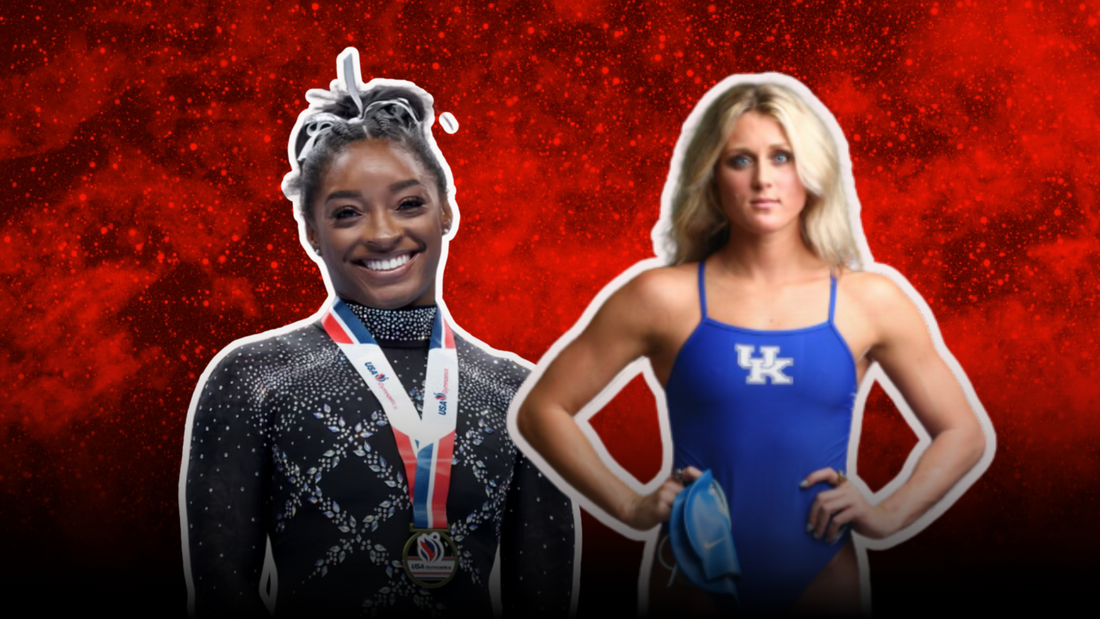
Simone Biles vs. Riley Gaines: Inside the Explosive Social Media Showdown Shaking Women’s Sports
By Jayson Panganiban June 16, 2025 09:45
In early June 2025, a fiery social media feud erupted between gymnastics legend Simone Biles and former collegiate swimmer turned conservative activist Riley Gaines, thrusting the contentious debate over transgender athletes in women’s sports into the national spotlight. The exchange, marked by sharp personal attacks and passionate defense of opposing views, highlights the deep divisions and complex emotions surrounding this evolving issue.
How It Started: A Controversial Comment Sparks the Fire
The conflict began when Riley Gaines reacted to a Minnesota State High School League post celebrating Champlin Park High School’s Girls 4A softball championship. The team’s star pitcher, Marissa Rothenberger, is a transgender athlete assigned male at birth. Gaines, a vocal opponent of transgender women competing in female sports categories, posted on X (formerly Twitter), “Comments off, lol. To be expected when your star player is a boy,” directly challenging Rothenberger’s participation.
Simone Biles, the most decorated gymnast in history with 11 Olympic medals, quickly responded to Gaines’s comment with a harsh rebuke, calling Gaines “truly sick” and a “straight up sore loser.” Biles’s reaction was fueled by her belief that Gaines’s attack targeted a young athlete caught in what Biles described as a “flawed system.” Biles later clarified that her frustration was with the systemic issues in sports governing bodies rather than with individuals.
The Escalation and Public Backlash
The exchange quickly escalated, drawing intense attention from fans, media, and fellow athletes. Gaines doubled down on her stance, emphasizing her advocacy for “women’s single-sex spaces, equality, and fairness.” She accused Biles of bullying and dismissing the legitimate concerns of female athletes about competitive fairness.
The feud also drew in other prominent voices. Retired gymnast Mykayla Skinner sided with Gaines, accusing Biles of bullying and supporting Gaines’s right to speak out. Former NASCAR driver Danica Patrick publicly backed Gaines as well, framing the debate as part of a broader “woke mind virus” affecting sports.
Biles’s Apology and Call for Constructive Dialogue
On June 13, Biles issued a public apology for getting personal during the heated exchange. She wrote, “I should not have taken a personal approach with Riley,” acknowledging that the conversation around transgender athletes often leads to “frustration and heated debates.” Biles emphasized the need for sports organizations to develop policies that balance “competitive equity and inclusivity,” asserting, “We all want a future for sport that is fair, inclusive, and respectful.”
Biles’s apology was seen by some as a step toward de-escalation, though Gaines expressed skepticism, suggesting the apology was more about public relations than genuine reconciliation.
The Larger Context: A National Debate
The Biles-Gaines feud is emblematic of a national conversation about transgender participation in women’s sports. Advocates for inclusion argue that transgender athletes deserve the right to compete consistent with their gender identity, while critics raise concerns about physical advantages and fairness.
This debate has intensified amid recent high-profile cases, such as transgender athletes winning state championships and the federal government’s involvement in regulating sports policies. The clash between Biles and Gaines reflects the emotional and ideological stakes for athletes, fans, and policymakers alike.
The social media showdown between Simone Biles and Riley Gaines encapsulates the passionate and often painful struggle to reconcile fairness, inclusion, and respect in women’s sports. While Biles champions a vision of inclusivity tempered by fairness, Gaines advocates fiercely for protecting traditional women’s sports categories. Their public feud underscores the urgent need for thoughtful dialogue and policy solutions that honor the dignity and rights of all athletes.
As the debate continues to unfold, the voices of athletes like Biles and Gaines will remain central to shaping the future landscape of competitive sports.

































































